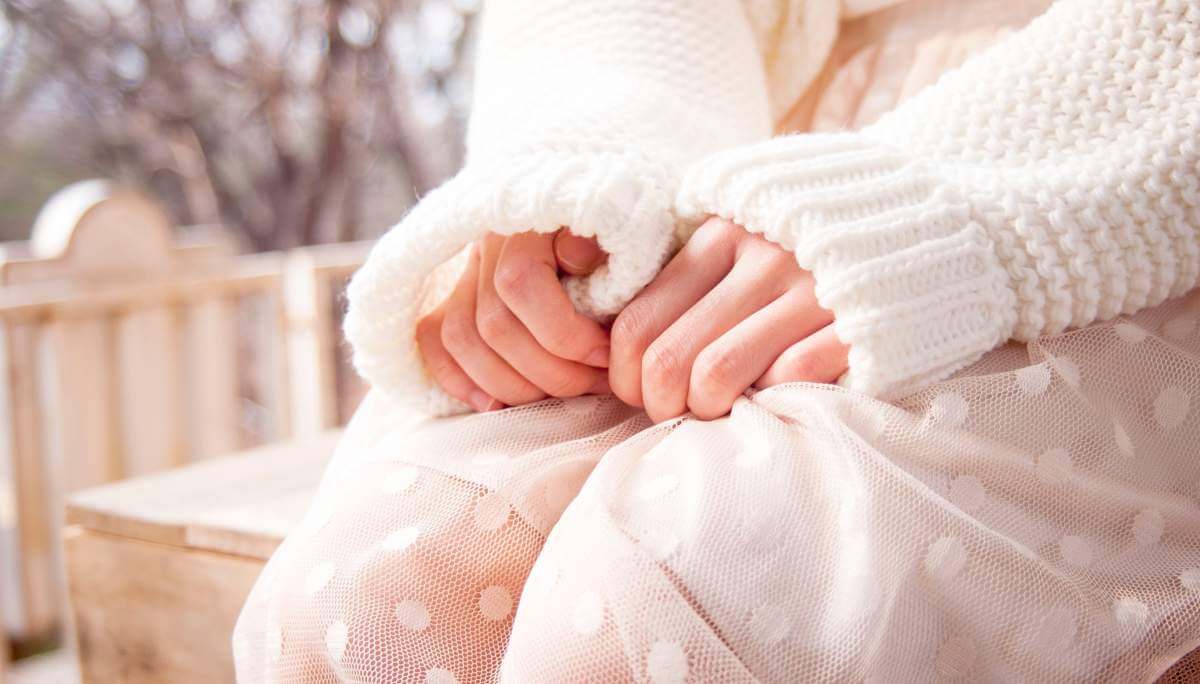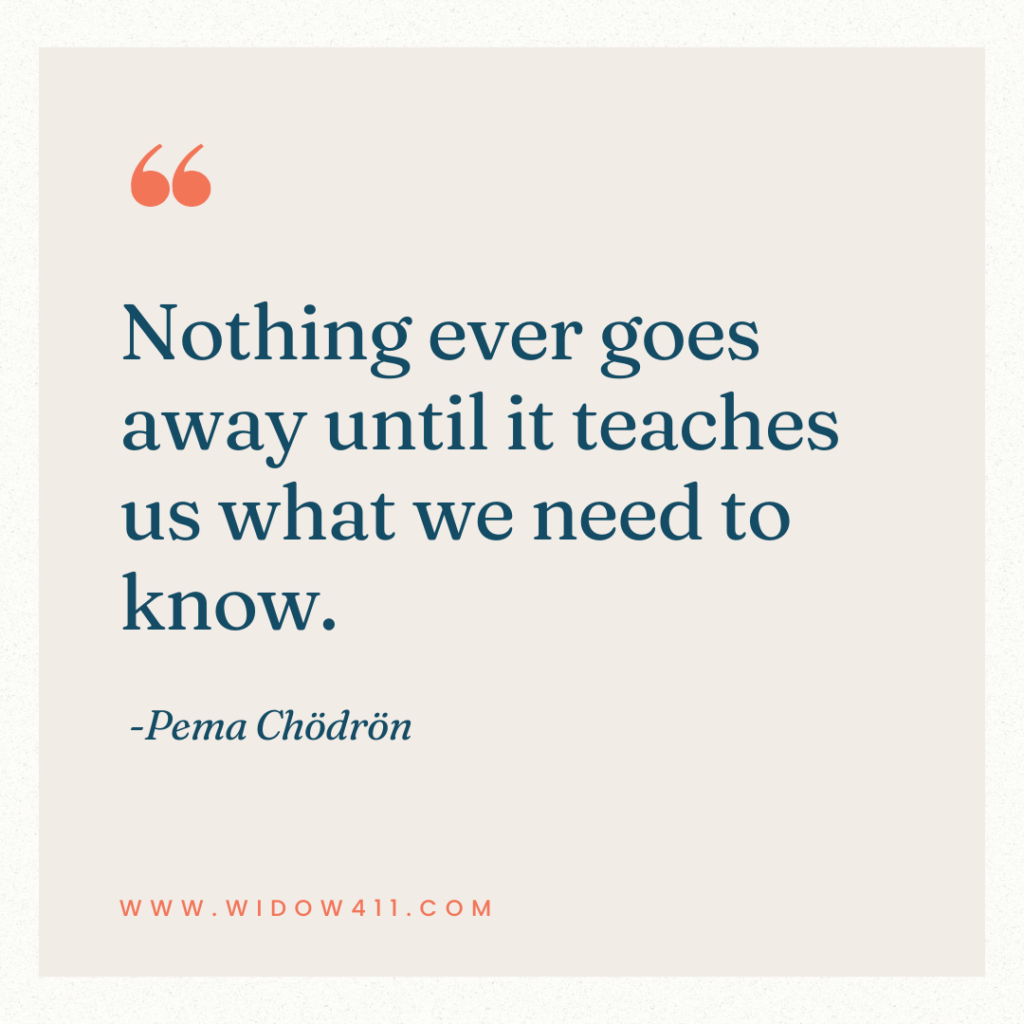Do You Make People Anxious? Here are 5 Ways to Improve Relationships

Short and Sweet Summary: It’s no secret grievers make people anxious because they don’t know what to do or what to say or how to act around those who suffer. Lift the anxiety burden on yourself and others with these communication tips to improve your relationships.
It’s no surprise that grievers can be a major buzzkill. I mean, who wants to be around someone who’s sad or despondent all the time?
Grief sucks. I don’t even like to be around myself sometimes.
The anxiety and worry surrounding grief can be suffocating, no doubt. And it can make other people anxious because they don’t know what to say. Or what to do. Or how to act.
But worry and angst don’t have to be obstacles to your relationships. They can actually be catalysts. I know it sounds counterintuitive that anxiety or worry can help improve relationships but bear with me.
You can improve your relationships if you use anxiety to your advantage. Anxiety is a common human emotion. We all feel it one way or another.
So, why not practice vulnerability and share your true feelings with others? Why not take the negative connotation away and focus on using these five communication areas to your advantage instead?
I know I make other people anxious sometimes. And I used to get upset with people for being anxious because I’m anxious. But I can’t continue getting upset with people who have limited resources to handle my grief. It’s difficult for others to help me if I don’t give them the means to help me.
Here are five ways I’m helping people help me. I’m using these techniques to improve my relationships and you can too.
Tell the Truth
The only way to really connect with other human beings is to be honest about being a human being.
Life can be messy. No one gets through life unscathed. So, why don’t we talk more about what connects us? Like the complicated burdens of being human instead of lobbing disconnected comebacks like, “I’m fine” or “It’s all good?”
We’ve conditioned ourselves to believe that vulnerability equals weakness. If I admit I’m struggling or unhappy or empty, people might think less of me because I don’t have it all figured out. I might make people uncomfortable with my unknowing.
But aren’t we all unknowing? Aren’t we all learning as we go? I have yet to meet someone who has all the answers. I don’t know anyone who feels positive and has no worries 100 percent of the time.
Nobody’s perfect.
The only way to really connect with another is to admit those imperfections. I didn’t tell the truth about how hard it was getting through my days after my husband died. So, I lied. And, I said I was OK.
Only I wasn’t OK. And I stalled my healing ability by stuffing my feelings into a black hole of cover-ups and falsehoods.
After a few years of near-constant dread, I finally opened up about my struggles. I admitted the panic of making every decision alone. I confessed how many times I visited the doctor because of my irrational fear of dying and leaving my kids orphans.
Oh, and I started this website.
Once I admitted my true feelings, people started showing up for me in ways they couldn’t before. I promised my friends and family I wasn’t looking for anyone to solve my problems. I just needed to vent.
My openness and vulnerability reduced their own fear of doing or saying the wrong thing.
The effect of honesty in my relationships cannot be overstated. The dread diminished. My world changed.

It’s almost like the sky opened up and angels started singing hallelujah while beaming bright lights straight to me.
Honesty opens the opportunity for someone else to admit to feeling the same way.
It’s surprising how many people react with “me too!” once you go first.
Do yourself and your relationships a favor by being as authentic as possible.
Stop Masking the Sad Feelings
I misinterpreted anxiety and worry for its underlying emotion: sadness.
The general consensus in society is that we shouldn’t be sad. Sadness makes people uncomfortable. It’s too heavy. When society advocates for happiness all the time, it’s no wonder we mask and ignore sad feelings. We’re told to fill gratitude journals so we can be happy. Or meditate and be mindful of all we must be grateful for so we can be happy.
The problem is when we don’t feel the sad feelings, all kinds of other emotions surface instead. Like anxiety and worry.
See the cycle here?
While gratitude and mindfulness are wonderful coping mechanisms, they’ve hijacked the spotlight and pushed sadness right off the stage.
Once I spent time being sad, amazing things happened. My anxiety diminished (I’d love to tell you my anxiety is gone, but it’s not. I’m human). Worry wasn’t as prevalent. My tense body started to soften.
Please allow yourself to be sad for all you’ve lost.
Recoup your right to feel sorrow and let sadness have its place in your emotional lineup. Its job is to deliver the message that you still have healing to do. Only when you recognize your own feelings of sadness and melancholy can you appreciate your days of happiness and joy.
We need sadness and the contrast it brings to recognize our growth in other areas.

The lesson here is that you must first improve your relationship with yourself before you can improve your relationship with others. By feeling your feelings, sadness included, you relinquish the suffering associated with this uncomfortable emotion.
Sadness is necessary. It’s OK to be sad.
Let it do its job.
Show Up and Care for Others
When you’re grieving and the world is a miserable place, it’s easy to fall into the “woe is me” mentality. But before you succumb to being a victim, here’s a suggestion.
Do something for someone else.
I’m not talking about doing something for your kids or your parents or taking care of others like you normally do.
I’m talking about getting out of your own head and being emotionally or physically available to someone else outside of your family.
When my husband died, a friend created a meal train so volunteers could drop off prepared dinners for my family. The support was overwhelming. I was so relieved to not have to think about, shop for or cook dinner.
So, when another friend’s husband suffered a series of strokes, the community rallied together again and created a meal train for her family. Less than six months after my husband died, I volunteered to make dinner for this family, but some friends suggested I shouldn’t take on that extra burden since my grief was still so fresh.
I explained that it actually helped me to help this family. I received so much support at a critical time in my life and this family deserved the same kind of support.
Showing up for others is a surefire way to not only improve your relationships but also to get out of the grief zone. When you’re doing something for someone else, your brain is less engaged in grief and more engaged in the task at hand.
Whether it’s making dinner for someone in need, volunteering at the dog shelter, reading to 1st graders at the elementary school or lending an ear to someone who needs to vent, caring for others helps you too.
I’ve talked at length about my husband’s death and its effects on my family for the past several years. My friends listen with open hearts and non-judgment. So, when they’re having problems with husbands, kids, extended family, coworkers or whoever, I try to listen with an open heart and non-judgment.
I can’t tell you how many times the conversation opens with, “well, this is nothing compared to what you’re going through…” and I stop them right there.
We all have struggles of one kind or another and their struggles matter even if mine seem so much larger. As a matter of fact, I would sometimes rather feel their pain than my own pain.
I want to hear their stories. I need to hear their stories. We aren’t the only ones hurting and suffering from life’s shit storms. Other people suffer too. When we reciprocate and give back, we’re making some pretty significant deposits into our own karma bank. And we’re helping our healing.
It feels good.
Let others know how and when you’re available to help. You won’t even be aware of how much you’re helping yourself in the process.
Set Boundaries and Remove Shame
As much as we should show up and care for others, we also need to set boundaries that complement our relationship needs. Not everyone has our best interest at heart, so being mindful of what boundaries to set with whom goes a long way in improving your relationships.
There’s no shame in ensuring whoever you come in contact with is mutually respectful and caring. Because you’ve suffered a tremendous loss, you need to be extra careful of how you expend your energy.
The best thing you can do to improve relationships is to teach people how to treat you. To decide what behaviors you’re willing and unwilling to accept.
Sometimes you need to reevaluate faltering friendships and decide to remove the toxic ones. Maybe you need to tell a family member to mind her own business when she starts telling you what you should or shouldn’t do.
A simple, “thanks but that doesn’t work for me” or “I appreciate your concern, but I can handle this” reinforces your right to make your own decisions.

Setting boundaries is a form of radical self-care. When you improve your relationship with yourself by honoring and communicating your wants and needs, it’s easier to ask the same of others.
Limit Social Media
Social media is ripe for misinterpretation. Because it lacks emotional connection and is damn near impossible to convey authentic expressions, it’s not a good way to communicate.

How many times have you felt bad for disagreeing with other commenters or when they disagree with you?
Do you find yourself not feeling good enough, or questioning other people’s motives?
Have you ever thought something is wrong with you because your views are not part of the majority in a thread or in a specific group?
Newsflash: There’s nothing wrong with you.
If you’re looking to improve relationships, you can start by improving your self-esteem and mental health by limiting social media. Unrealistic portrayals of life and exaggerated attempts to curate only positive family dynamics means you’re not getting the real story. Or the whole story. Maybe you’re the one not being authentic.
Either way, social media can damage meaningful relationships by perpetuating insincerity.
You owe it to yourself to put a limit on social media and decrease the time and effort you give to non-face-to-face interactions.
Widow Wrap Up
It’s no secret grievers make people anxious because other people don’t know what to do or what to say or how to act around those who suffer.
However, you can lift the anxiety burden on yourself and others with these communication tips to help improve your relationships. When you learn to tell the truth and stop masking the sadness you’re feeling, you automatically reduce others’ nervousness around you.
When you show up and care for others, you get out of your grief zone for a while. And when you set boundaries and remove the shame surrounding your sadness, you teach people how to treat you.
The anxiety surrounding grief may never completely go away. But it sure does diminish when you honor your wants and needs and ask the same of others.
All of these tips provide ways for you to improve relationships by communicating honestly with others so they know how to communicate with you.

